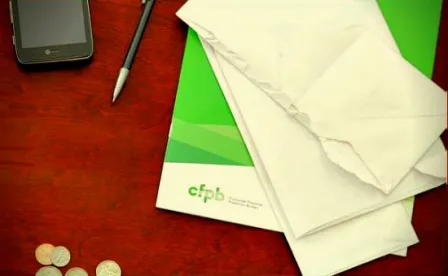On November 10, 2022, the CFPB published a circular addressing perceived problems with the Consumer Reporting Agencies (“CRAs”) and furnishers handling of disputes. See Circular 2022-07.
As is well-known, the FCRA requires CRAs and furnishers to conduct a reasonable investigation when properly notified of a dispute about information in a consumer report. The circular sets out to address two questions on this important topic.
Question 1: Whether a CRA or furnisher may “impose obstacles that deter submission of disputes?”
Not surprisingly, the CFPB answered the first question in the negative. The CFPB suggests the CRAs and furnishers expose themselves to potential liability by placing unwarranted demands on a consumer before it will conduct an investigation. The CFPB provided several examples from prior Supervisory Highlights and enforcement actions that would not be permissible:
-
CRAs requiring a consumer to provide a recent copy of a consumer’s report before investigating the disputed information;
-
Furnishers requiring additional specific documentation even where the consumer has provided enough information to support the direct dispute; and
-
Requiring the use of a proprietary form.
The CFPB closed by reminding the CRAs and furnishers of the duty to investigate non-frivolous disputes “even if such disputes do not include the entity’s preferred format, preferred intake forms, or preferred documentation or forms.”
Question 2: Whether a CRA must forward documents attached by a consumer to a dispute to the furnisher?
The CFPB responded, “It Depends.”
A CRA can violate the FCRA by failing to promptly provide to the furnisher “all relevant information” about the dispute that the CRA receives from the consumer. The CFPB notes while there “no affirmative requirement for a CRA to provide original copies of documentation received from consumers, ... it would be difficult for a CRA to prove that it provided all relevant information if it failed to forward even an electronic image of documents that constitute a primary source of evidence.”
On this point, the CFPB seemed to take the CRAs to task for its use of automated processes, noting that CRAs “tend to ingest dispute information from consumers using automated protocols, and they also share dispute information with furnishers electronically.” While these automated processes may help reduce cost and time, the CFPB suggests CRAs risk violating the FCRA by not forwarding “original documents in paper form” to a furnisher because “it will be difficult” for a CRA to assert “that it complied with the FCRA if it does not provide electronic images of primary evidence for evaluation by the furnisher.”
Takeaway
Consumer complaints to the CFPB regarding the accuracy of information on consumer reports and the CRA and/or furnisher’s investigation of disputes are on the rise year after year and as such, the CFPB remains hyper-focused on this issue. CRAs and furnishers should continue to be diligent in their investigation processes to ensure compliance with the FCRA and CFPB regulations.




 />i
/>i
